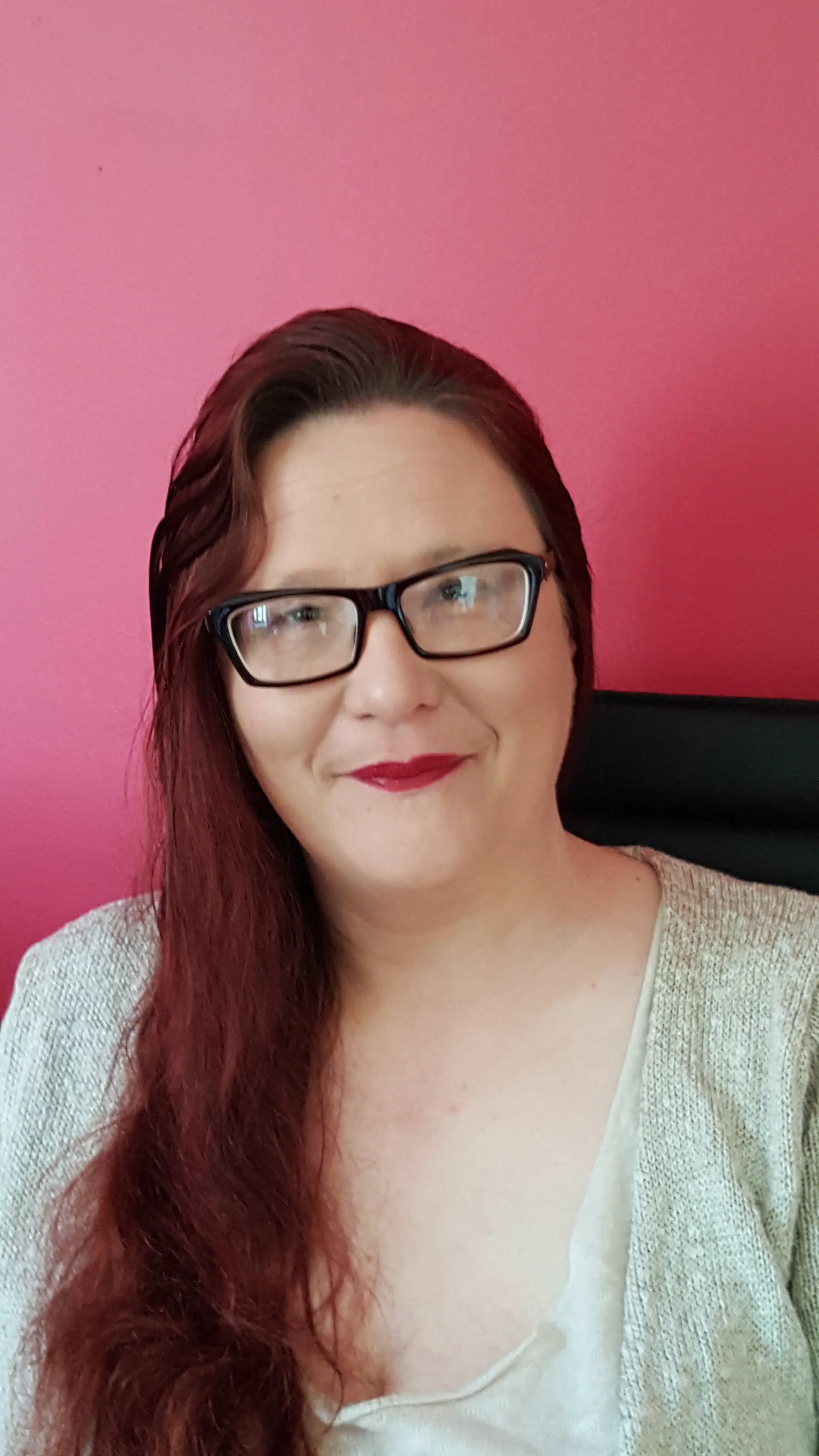Karen Pollock is a therapist in Stocksfield, Northumberland
What attracted you to become a therapist?
Sometimes what should be the easiest question to answer, is in fact the hardest, because it means trying to pin down in one moment the complex series of cause and effect which led up to the present moment. I know two direct influences were the therapist I had at university, when I was struggling with my dissertation, and then one much later when I had postnatal depression. Perhaps the thing that attracted me was that I knew that it worked, but that all too often people were experiencing poor and judgemental therapy.
Where did you train?
South Tyneside College and currently studying for a post graduate diploma in gender, sexuality and relationship counselling
What sort of people do you usually see?
I generally, but not exclusively, see members of the LGBTQ, kink, poly, and other marginalised communities often known as GSRD . However many people who do not belong to these communities also choose to see me because they know I will not judge whatever issue they are bringing. I think the fear of judgement is very strong in many of my clients.
So many people still struggle with negative societal attitudes, and have had previous negative experiences of therapy; this is why I believe so strongly in improving training for therapists. It is not enough to say you are non-judgemental when your behaviour and attitudes are in fact very judgemental.
What do you like about being a therapist?
Everything except the admin! Seriously though, you walk alongside someone in the darkest moments, and brightest dawns, and see them thrive and grow. It is both a pleasure and a privilege. As Rogers described it, someone comes to you in pain, and to see them leaving, pain relieved, better equipped for life's journey, that is an incredible experience.
What is less pleasant?
The British attitude towards therapy, which even affects how we are viewed by the NHS. Imagine if there were a counsellor in every GP's surgery instead of our "keep calm and carry on until the burden destroys you" attitude. I also still at times encounter prejudices against LGBTQ+ people, which whilst never pleasant reaffirms that this is what I want to be doing.
How long you've been with welldoing.org and what you think of us?
I think I have been with welldoing.org since the launch, and I love the site. Clients seem to find exactly the right therapist for them, which matters so much, and I also love the articles, and the wide range of issues they cover.
Have you used the booking and payment system? And how do you find that?
I have just signed up to it and I am hoping it will really help with the dreaded admin.
Have you joined the welldoing.org Therapist Community on Facebook?
Yes, and to be honest I should spend more time there, it looks like a thoughtful and friendly group which shares interesting articles.
Do you ever suggest books or apps to clients?
Yes for books, sometimes in response to requests, at other times because it feels right. Generally clients with me tend to move away from apps, one of the things which I encourage is to be in the moment, to listen to your gut, and to start to feel. I often say we are human beings, not human doings. Whilst there are great apps out there, and they can be useful in the short-term, they can end up making us feel worse, or like we are constantly doing and never being. I am passionate about self-care, and weave it through the therapeutic work. I strongly believe we need to be able to listen to what we need to nurture ourselves.
What you do for your own mental health?
I love walking, and I am blessed to live in rural Northumberland, so each day I take time just to be surrounded by nature, to breathe, to watch the seasons turn. One of the reasons I have started walking therapy is because I know the benefits this brings to my own mental health.
I also enjoy losing myself in superhero films you can't beat a good archetype , painting, writing poetry and of course I have my own therapist.
You are a therapist in Newcastle Upon Tyne and Northumberland. What can you share with us about seeing clients in those area s ?
I work in the North East of England, Newcastle upon Tyne and Northumberland and online. I think the major way that clients in my area might differ is in the huge diversity of clients I see, because there are not many therapists in my area. This is incredibly rewarding for me, since I see everything from poly couples exploring kink through to bereavement counselling and work-related stress, and all points in-between. No two days are ever the same!
What's your consultation room like?
A lot of my work is online, or in the beautiful Northumbrian countryside, a real case of extremes. For face-to-face work I have a lovely room where the walls are lined with books, and the atmosphere is one of peace and tranquility.
What do you wish people knew about therapy?
That it is not about being weak or broken: the strongest thing someone can do is say, I have the courage to look inward and try to enact change. I also wish people valued themselves enough to consider it worth paying to do the most important work they will ever do, that of personal growth.
What did you learn about yourself in therapy?
So much its almost impossible to know where to begin. Perhaps the most important thing is that there is no perfect, there is only good enough.

